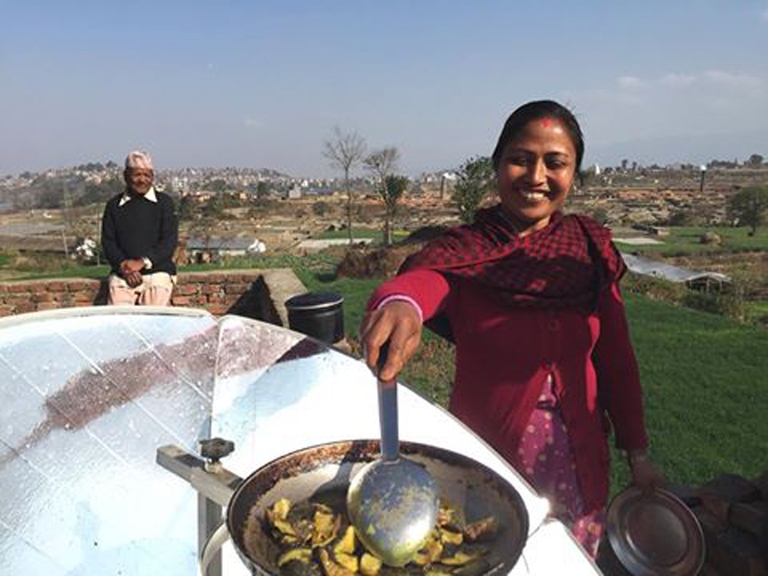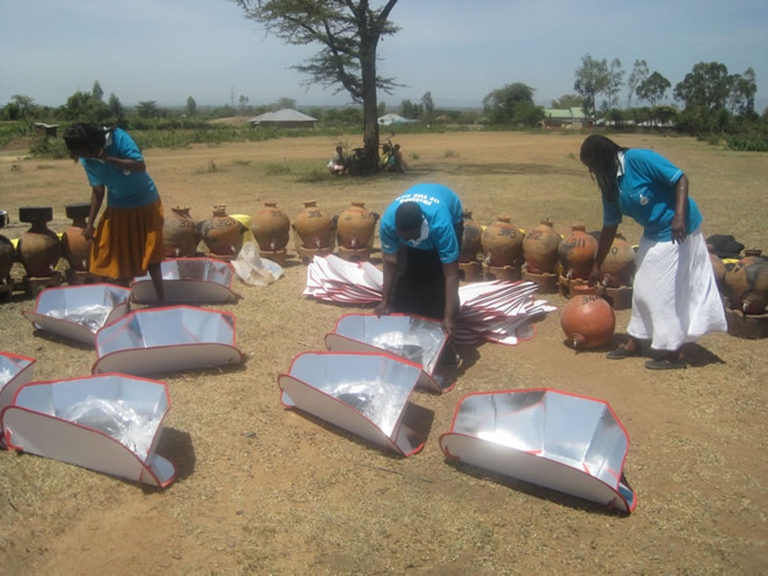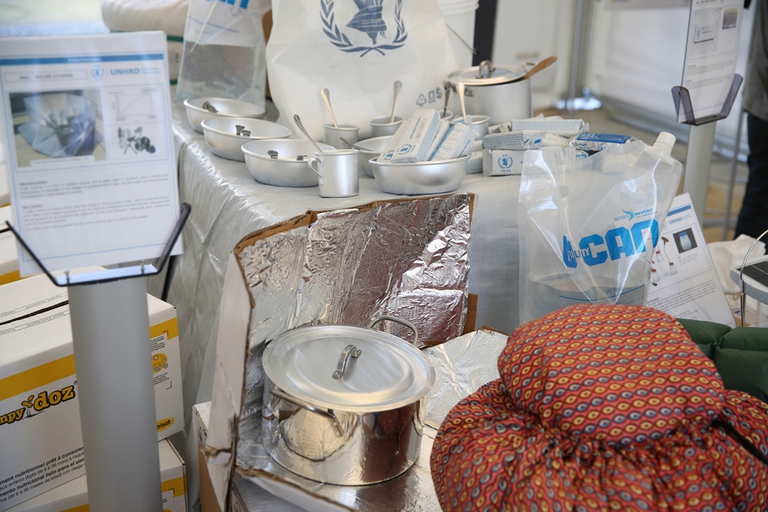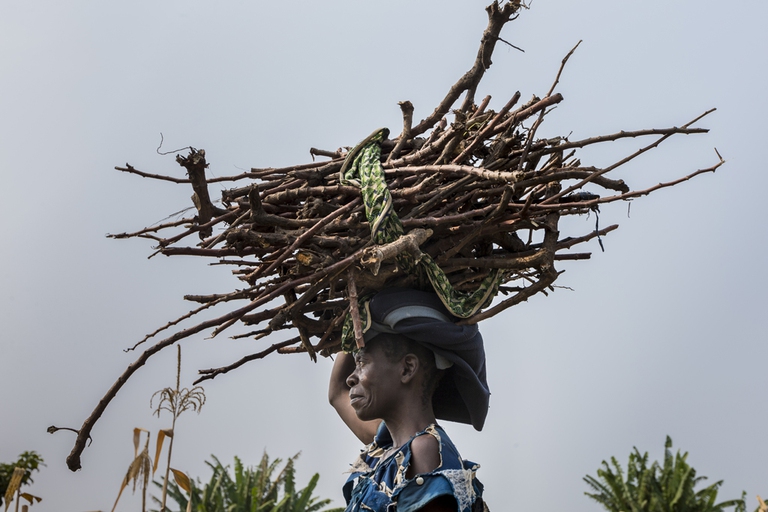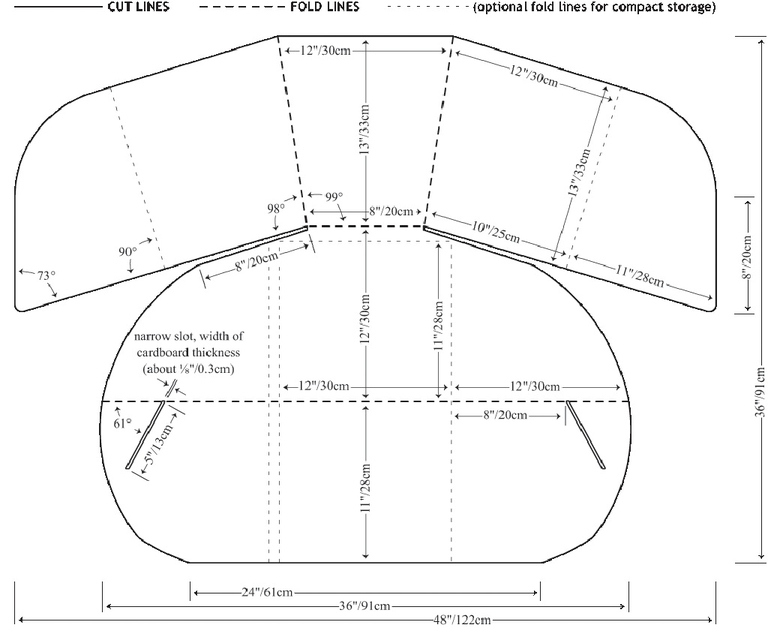
A group of experts in Tokyo suggested pouring radioactive water from Fukushima into the open sea. A marine biochemist explains the consequences of this absurd decision.
Solar cookers offer an alternative way of cooking using solar energy instead of fire or traditional kitchens.
Solar cookers use more or less simple technology and work on this basic principle: they capture sunlight to warm up a pot that is located in a focal point.
These tools allow to cooking as well as pasteurising food to make it safer for people living in regions where the access to traditional energy sources is lacking or sporadic.
In addition, compared to generators that consume expensive fuels or stoves that burn wood, solar cookers use exclusively free renewable energy from the sun: thanks to the reflectors that heat pots without combustion, solar cookers are clean objects that don’t emit harmful smoke and safe solutions in arid and fire-prone areas.
There are simple, cheap and very effective CooKits made of cardboard panels and reflective alluminium sheets that are also distributed by humanitarian organisations as well as more expensive and sophisticated systems. In any case, solar cookers are very useful , mostly in those countries where the scarcity of economic resources goes hand in hand with the abundance of sun.
The impact of these objects is particularly significant if you consider that generally it’s women who are involved in household economy and firewood collection even away from home, two activities that take them a lot of time and threaten their safety, exposing them to potential assaults and harassment.
Since 1987, the NGO Solar Cookers International (SCI) has been expanding the use of these powerful solar cooking tools and distributing some three millions of them to populations in need that account for about 11 million people. On the other hand, SCI estimates that there are still three billion people who cook over an open fire every day: solar cookers could be very helpful for them.
SCI makes available online open source instructions to build a solar cooker and compares different models and technical solutions to allow users to choose knowingly, according to their preferences or resources.
Siamo anche su WhatsApp. Segui il canale ufficiale LifeGate per restare aggiornata, aggiornato sulle ultime notizie e sulle nostre attività.
![]()
Quest'opera è distribuita con Licenza Creative Commons Attribuzione - Non commerciale - Non opere derivate 4.0 Internazionale.
A group of experts in Tokyo suggested pouring radioactive water from Fukushima into the open sea. A marine biochemist explains the consequences of this absurd decision.
A federal court in Washington, D.C. has struck down the Dakota Access Pipeline, following years of campaigning by the Standing Rock Sioux tribe.
The Scottish island of Eigg is self-sufficient for its energy needs, relying almost entirely on renewable sources, especially thanks to a coordinated community effort.
President Magufuli in unmovable in going ahead with the Stiegler’s Gorge dam despite conservationists’ warnings of the damage it will cause the Selous Game Reserve’s ecosystem and wildlife.
A large dam along the Luangwa River in Zambia would have posed a serious risk to local people and wildlife, leading hundreds of thousands to oppose it. A call to which the government responded by halting plans to build it.
The first one megawatt solar power plant in the Chernobyl exclusion zone has become operational. This is the first step in a renewable energy development project promoted by the Ukrainian government in the area.
A tanker exploded at a gas and petrol station in Nigeria’s Nasarawa state on the 10th of September, killing 35 people and leaving some burned beyond recognition; 3 citizens had several spine and brain injuries, 2 of them are still on Intesive Care Units. Fela Habila , a local singer, is now stable and out of danger but
The largest tidal power plant in the world will be built in the Larantuka Straits. It will serve 100,000 people and help overcome some of the challenges of energy provision in Indonesia.
Robben Island’s solar energy micro-grid project will produce almost one million kilowatt hours of electricity annually, significantly reducing the cost and impact of buying diesel.
